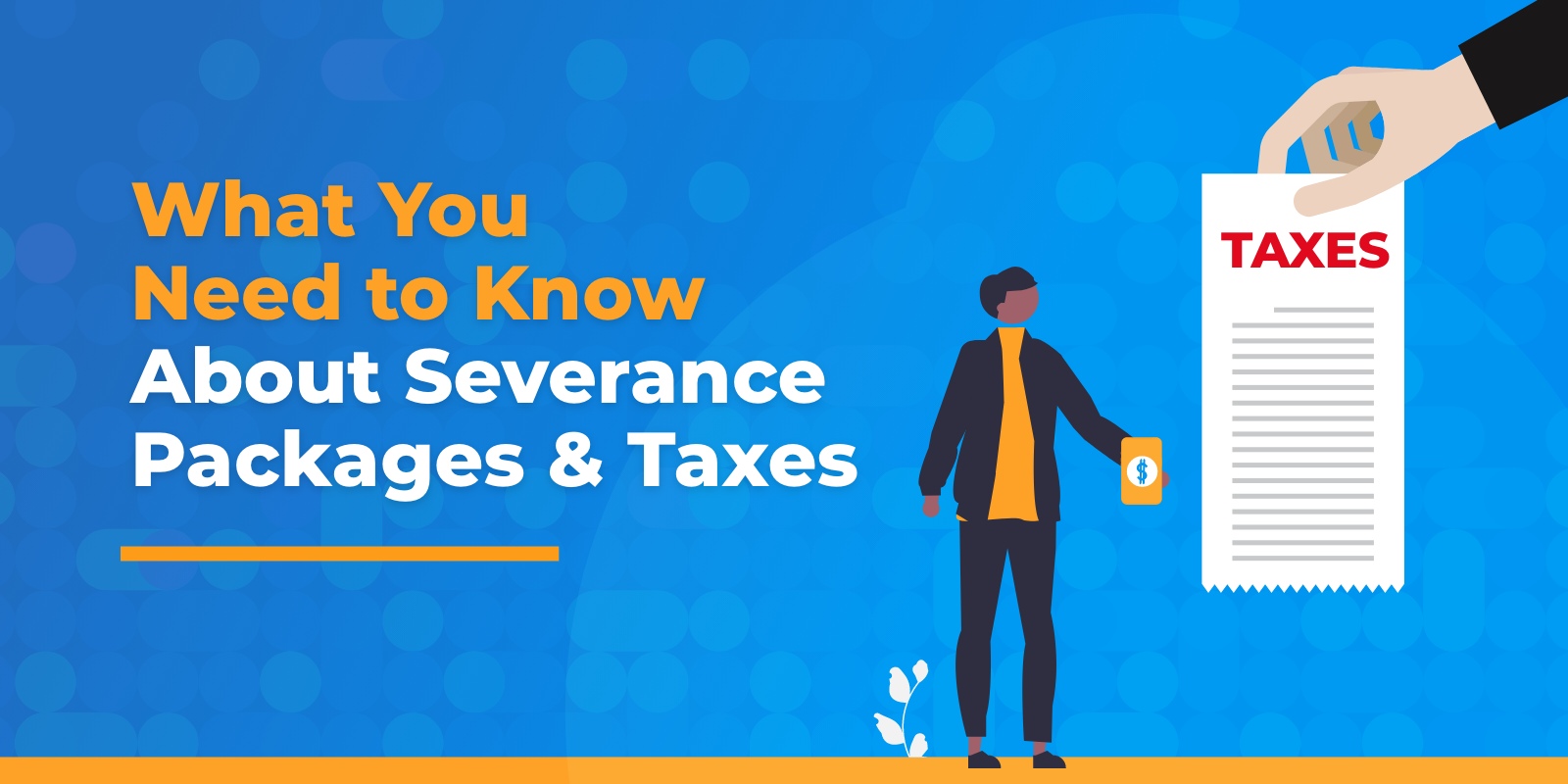
Losing your job is stressful enough as it is. If you are offered a severance package when let go, your first thought might not be on taxes. However, even severance pay is considered income which means it is taxable. Here we will discuss what you need to know about severance packages and how they affect your taxes.
What Is a Severance Package?
A severance package is a combination of pay and benefits offered to employees after being laid off from an employer. To receive the package, an employee will typically need to sign a severance agreement that details the amount of pay to be received, as well as any benefits that will be offered. The agreement may also list terms that the employee must abide by to receive the package. For example, accepting a severance package could mean that you are not eligible to file a wrongful termination lawsuit or collect unemployment benefits. Severance packages are offered at the employer’s discretion. In other words, employers are not legally obligated to offer a laid off employee any severance pay.
Is Severance Pay Taxable?
Severance pay is taxable, similar to any regular wages or salary income you earned prior to being laid off. Severance pay is taxed in the year of payment and most employers will include your severance pay on your W-2, along with any unused accrued vacation or sick time. Employers will typically withhold federal and state taxes for you, including:
- Social Security tax
- Medicare tax
- Federal income tax withholding
- State income tax withholding (if applicable)
- Federal unemployment tax (FUTA)
Are There Any Tax Deductions for Job Hunting?
As of the 2017 Tax Cuts and Jobs Act, taxpayers may no longer write off job hunting or moving expenses.
How Does Severance Pay Affect My Taxes?
In some cases, not enough taxes are withheld from severance pay. If this happens, you might owe during tax time. To avoid this, you can confirm your withholding is correct or make an estimated tax payment on the IRS website.
Another scenario can involve a large severance package bumping you up into a higher tax bracket. This could happen because your income is taxed the year it is received. For example, if you receive six months of severance pay at the end of the year, you will essentially receive 18 months’ worth of pay, which could be a drastic increase in income compared to the previous year. This could cause a change in your tax rate and disqualify you from certain credits and deductions.
If you find yourself in the above scenario, there are ways to minimize your tax bill. For example, you can contribute to a tax-deferred retirement account, add funds to a health savings account (HSA), or open a 529 plan for your child’s college fund. You can also ask your employer to have the severance payments spread out to avoid a large tax bill.
Tax Help for Those Who Received Severance Pay
If you were recently laid off and received a severance package, you should make sure enough taxes were withheld. If it’s clear that is not the case, you can still avoid a large tax bill. Your best bet is to speak to a trusted tax professional to avoid a stressful tax issue.
Optima Tax Relief is the nation’s leading tax resolution firm with over $1 billion in resolved tax liabilities.
If You Need Tax Help, Contact Us Today for a Free Consultation